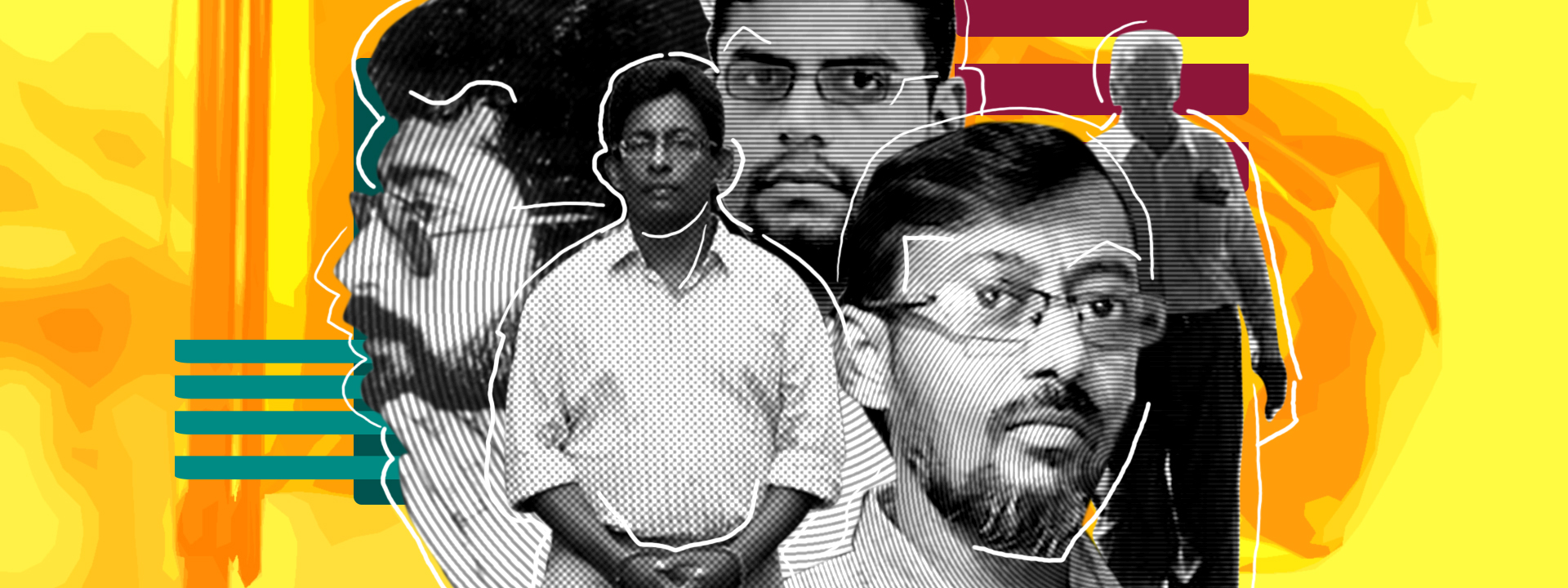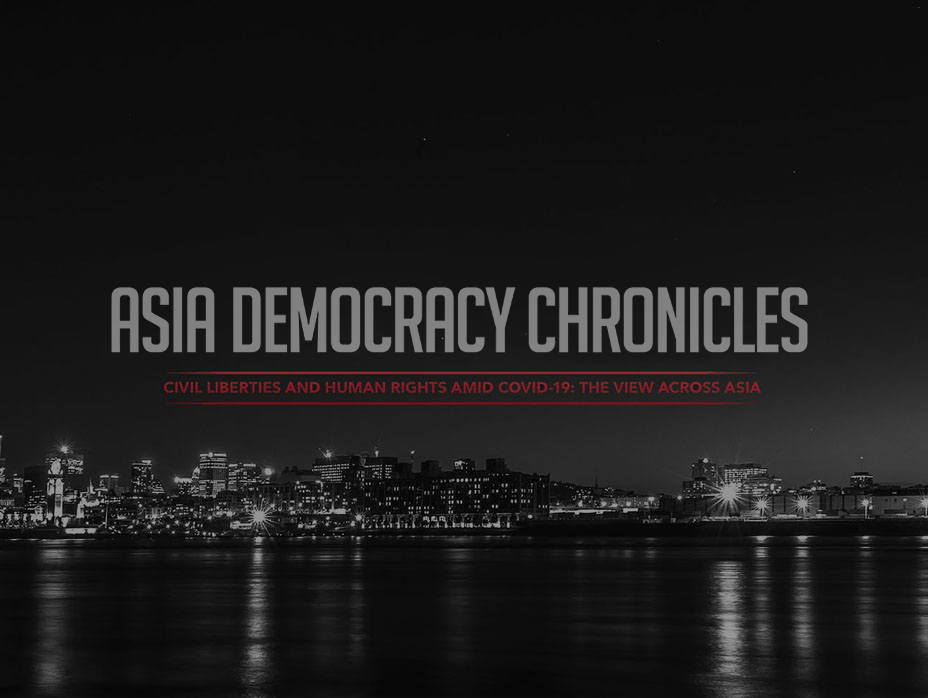There is a clear global trend of curtailing freedom of expression under the guise of controlling the COVID-19 pandemic. At the time of writing, 34 countries have been recorded as taking executive action, issuing orders or promulgating laws affecting this freedom.
In Sri Lanka, within less than two weeks of the lockdown, on 1 April 2020, a letter was issued by the Police Media Division to all news directors and editors, in relation to public officials engaged in COVID-19 health crisis work, stating that:
“එම රාජකාරී, විවේචනය කරමින් සහ නිලදාරීන්ගේ සුළු අඩුපාඩු මතුකර පෙන්වමින් ඉතා බරපතල ලෙස එම රජයේ සේවකයින් රාජකාරියට බාධා කරමින් සහ ඔවුන් බැන තර්ජනය කරමින් අසත්ය හෝ ද්වේශසහගත ප්රකාශ …ප්රසිද්ධ කරන බව වාර්තා වී ඇත. එම තනතන්ට එරෙහිව ඉතා තදින් නිතිය ක්රියාත්මක කිරීමටත් …අත්අඩංගුවට ගෙන ..නීතිමය පියවර ගන්න ලෙසත් …උපදෙස් ලබාදී ඇත.”
Translated, it refers to directions given for legal action to be taken against video and other publications on the internet that criticize the work of state officials and highlight their minor mistakes, which hinders their work, and for threats and false and malicious statements.
By 25th April, the Human Rights Commission of Sri Lanka (HRCSL) wrote to the Acting IGP (Inspector General of Police), emphasizing due process, and that those arrested on grounds of spreading misinformation must be informed of the reasons for arrest, and produced before a Magistrate within 24 hours.
The HRCSL reminded the police of the right to comment on or criticize the performance of public officials and stated that criticism and commentary are integral to improve governance and strengthen democracy. The letter concluded by saying that “any arrest for the mere criticism of public officials or policies would be unconstitutional.”
The public messaging on freedom of expression was both clear and unclear. It was clear that law and order agencies were scrutinizing social media communications and that harsh consequences could possibly follow information deemed ‘misinformation’. Yet the criteria as to what was legal and what was illegal for a social media post was vague.
Robust and transparent public communication ought to be a norm. Crises, including this public health crisis, requires a high degree of information sharing within government and with the public. However, this pandemic was responded to with non-disclosure, use of language of national security and in some instances, violence by those in power. The high level of public communication required for public trust was weak and repression was favored over it.
Freedom of speech and expression as democratic tools
The freedom of speech, and within it, the right to dissent in particular, is integral to a functioning democracy. It is the means by which citizens express what is not working, that they are disadvantaged, or that they are aggrieved. It introduces the notion that governments have a responsibility to listen and respond constructively, to deliver services, and to protect rights and ensure non-discrimination.
It also embodies the idea that those in power are not always right. These ideas are the building material of a government that serves its people and are necessary to conserving public trust. Once this humility is dispensed with, the walls of democracy start to crumble.
Sri Lankan jurisprudence on freedom of speech has focused on the value and scope of this right. In the case of Joseph Perera v. AG [1992] 1 Sri L.R. 199, then-Chief Justice Sharvananda, commenting on the dispersal of a gathering and arrest of organizers of a lecture on “Free education and popular frontism,” said:
“Free discussion of governmental affairs is basic to our constitutional system. Our form of government is built on the premise that every citizen shall have the right to engage in political expression and association, the People are the sovereign, not those who sit in the seats of power. It is the voice of the People which ultimately prevails. Free political discussion is thus necessary to the end that government may be responsive to the will of the people and changes may be obtained by peaceful means.”
In terms of the scope of this right, ensuring public order is the only justification by which the right can be curbed, if at all. It is not a justification that can be broadly or vaguely used.
Historical erosion of freedom of expression
Control of dissent, a colonial tool, was maintained by the ruling elite in Sri Lanka. Violence and the law, particularly in the form of the Public Security Ordinance, was wielded against any opposition. In more recent history curtailment of this freedom saw the murder of Richard de Soysa in 1990 and blacklisting of artists. During the war years (1983-2009), Sri Lanka earned notoriety for arbitrary arrests, abductions, murders, enforced disappearances of journalists and restrictions, and censorship, arson and threats to media institutions. Emergency Regulations and the Prevention of Terrorism Act (PTA) were used effectively to silence not only criticism but also attempts to foster understanding or alternate views. Two notable cases were the sentencing of journalist Tissanaiyagam to 20 years rigorous imprisonment under the PTA and the detention of peace activist Shantha Fernando for over 250 days under the PTA. ‘National security’ was the cover under which the Sri Lankan state encroached on this right.
Post war, freedom of expression continued to be violated. In recent years, the ICCPR (International Covenant on Civil and Political Rights) Act of 2007, which criminalizes the advocacy of “national, racial or religious hatred that constitutes incitement to discrimination, hostility or violence,” was ironically used to curb freedom of expression. In April 2019, award winning Sri Lankan writer Shakthika Sathkumara was arrested for the reference of abuse within a temple and was released on bail after five months. His case is still ongoing.
On 10th April 2020, human rights activist Ramzy Razeek was arrested under this law following social media comments by him against hate and discrimination faced by Muslims.

Activists, artists, and journalists bear the brunt of Sri Lanka’s clampdown on free expression. Among them are Shakthika Sathkumara, Shantha Fernando, Ramzy Razeek, J. S. Tissainayagam, and Richard de Soysa (clockwise from top).
Hate speech at first glance is protected as free speech and must thereafter be demonstrated objectively to have the ingredient of imminent harm and the intention to cause such harm. There are clear legal tests developed to identify when law enforcement ought to act and how the judiciary can ensure those measures are proportionate and necessary and do not breach fundamental rights. Therefore, a complaint of hurt feeling or sentiment cannot be acted upon per say. Yet, this seems to be criteria adopted and some complaints receive attention while others do not.
Selective implementation of the law explains the resounding silence and lack of action against those who were seen publicly generating misinformation, and hateful and racist content on traditional and social media. The failure to curb actual hate speech on social media that posed actual threat of violence and then led to violence that manifested on the ground is also well documented. It is also reflected in Facebook’s apology in 2020 for its failure to curb online hate which fuelled violence against minority Muslims.
Even during the COVID-19 lockdown, there was hate speech against minority communities in both traditional and social media with one minority identity group portrayed as vectors of the disease.
Impact of overreach
Tracing the use of the law, along with public statements by the executive, in curbing freedom of expression demonstrates that all governments have been complicit in different degrees in contributing to rule by fear and uncertainty.
Economic interests in development and exploitation, and political interest in nationalism have steered governance away from addressing inequality. As a result, there has been no political will, apart from actions in response to personal or ideological attacks, to systematically roll back the stifling legal regime on freedom of expression and its discriminate application.

It is not enough to tolerate criticism but to encourage it… Encouraging feedback and creating a safe space for it becomes a responsibility of governance.
Overbroad justifications of terrorism, and now COVID-19, have institutionalized overbroad regulation of this most valuable right. Overreach into this particular freedom perpetuates a chilling effect which deters the exercise of this freedom by broader society.
A cursory glance at those targeted by the overreach and one sees a pattern that brings into focus the poor and ethnic minorities usually subject to exploitation and violence. The common thread is social exclusion. The chilling effect is on the socially excluded.
Rebuilding a culture of freedom of expression
It wouldn’t be a stretch to say that our freedom of expression is in tatters and freedom to dissent is seen as an actionable threat today. It is not only necessary then to protect this right, but also to reinstall the safeguards around it. It is necessary to reaffirm this freedom with the people and leaders of Sri Lanka.
It is not the role of political leaders to insist on applause and accolades but to earn it. Receiving criticism is part of the job description. It is not enough to tolerate criticism but to encourage it. Citizen complaints range from dissatisfaction to cries for help. Encouraging feedback and creating a safe space for it becomes a responsibility of governance.
In the short term, and as a concrete measure moving forward, the Sri Lanka Police should issue a clarification regarding its letter to the media on 1st April, expressly commit to protecting free expression, adopt the guidance by the Human Rights Commission, and immediately educate the public and its own officers of the specific circumstances that constitute illegality while constitutionally preserving freedom of expression and the right to dissent.
In the medium term, it is recommended that legislative measures roll back on laws that curtail, or are misused to curtail, this freedom. This includes, for broader reasons relating to civil rights, the repeal of the Prevention of Terrorism Act and perhaps introducing a Freedom of Expression law.
In the long term, it is recommended that political leaders reiterate the right to criticize, question, challenge, and debate freely on matters of public concern, create avenues, and model constructive engagement. ●
This commentary was originally published by Groundviews, a citizen journalism website based in Sri Lanka. Republished in condensed form with permission from the authors and publisher.
Shalomi Daniel and Ermiza Tegal are Attorneys at Law. All comments and feedback can be sent directly to ermiza@gmail.com or shalomidaniel@gmail.com.

















